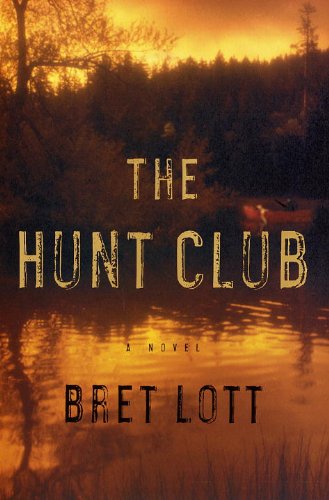One of the hundred books a year I read:
One of the hundred books a year I read:

The Hunt Club
Bret Lott
Purchase Options:
Affiliate links pay me a small commission on purchases but have no impact on your price.
Share this book with your friends!
This book caught my attention because of its setting—Charleston, SC, and the surrounding region. Tourists to the area see parts: the aristocratic charm of the historic district; the historic connections to the slave trade and civil war; the culinary and artistic impact of the early people; and the significance of its maritime industries, both private and military.
Lott takes us outside the city to the marsh lands and pine forests and a hunt club situated on the banks of the Ashepoo River, a blackwater river fed by the swamps near Walterboro. As the narrator says, much of this is trash land with little value to outsiders.
Our narrator, fifteen-year-old Huger Dillard (that’s You-gee and the name alone gives you that Charlestonian feel), helps his uncle run a Hunt Club for men of the well-to-do medical society. In the opening chapter, the body of a member of the hunt club, a powerful local physician, is found mutilated. A sign around his corpse implicates the uncle—the poor, blind owner of the land—of an affair with the physician’s wife, who kills her self hours later. And the twisting murder mystery is off and running (and never lets up).
For me, part of the enjoyment of the story came from the author’s capturing the Charleston area. Some people will find the grammar and dialect off-putting, but it immerses you into the region. The author references real streets, locations, and organizations (and, I admit, to stopping at points and looking a location up to see if it was real or imagined). Some locations have changed since the book as the city has prospered, but he even references that growth (calling Mt. Pleasant as “Beverly Hills South” cracked me up).
The author also highlights the conflicts of the old city—economic, racial, and sexist. The hunters are primarily SOB’s—the richest people who live in the historic mansions “south of Broad” in the historic district—and the land owners are poor and looked down upon. Racial disparities abound and racist language is used. The historical and cultural impact of the slave trade plays a key role. Women are either socialites or subservient. But the author uses these conflicts to highlight the unfairness.
So, for me, the mystery was reasonably good, the conflicts unsettling (particularly the casualness of racism and sexism by many characters), and the familiar setting memorable.
